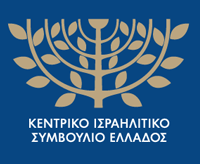ISRAELI COMMUNITY OF KO
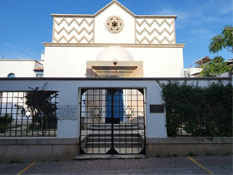 Kos is one of the most popular islands of the Dodecanese, and its geographical position, which is very close to Asia Minor, makes it an important center of trade and culture.
Kos is one of the most popular islands of the Dodecanese, and its geographical position, which is very close to Asia Minor, makes it an important center of trade and culture.
From Joseph we learn that there was a Jewish Community in Kos from the time of the Second Temple. Kos is mentioned as a place of residence of Jews in the chapter of Maccabees I (15.23) dating to 142 BC. In 49 BC, under the rule of Rome, the inhabitants of the island were ordered by the commander Fanius to respect the order of the Senate and to allow the safe passage of the Jewish pilgrims heading to Jerusalem.
Visitors to Kos should not miss the view of the harbor from the towering Castle built by the Knights of Saint John in 1314. It is known that the Knights of Rhodes exterminated the Jews for two centuries, but after their defeat by Sultan Suleiman the Magnificent the Jews returned in 1522.
In 1685, a small Community was established which, as far as the religious service was concerned, depended on the Chief Rabbi of Rhodes.
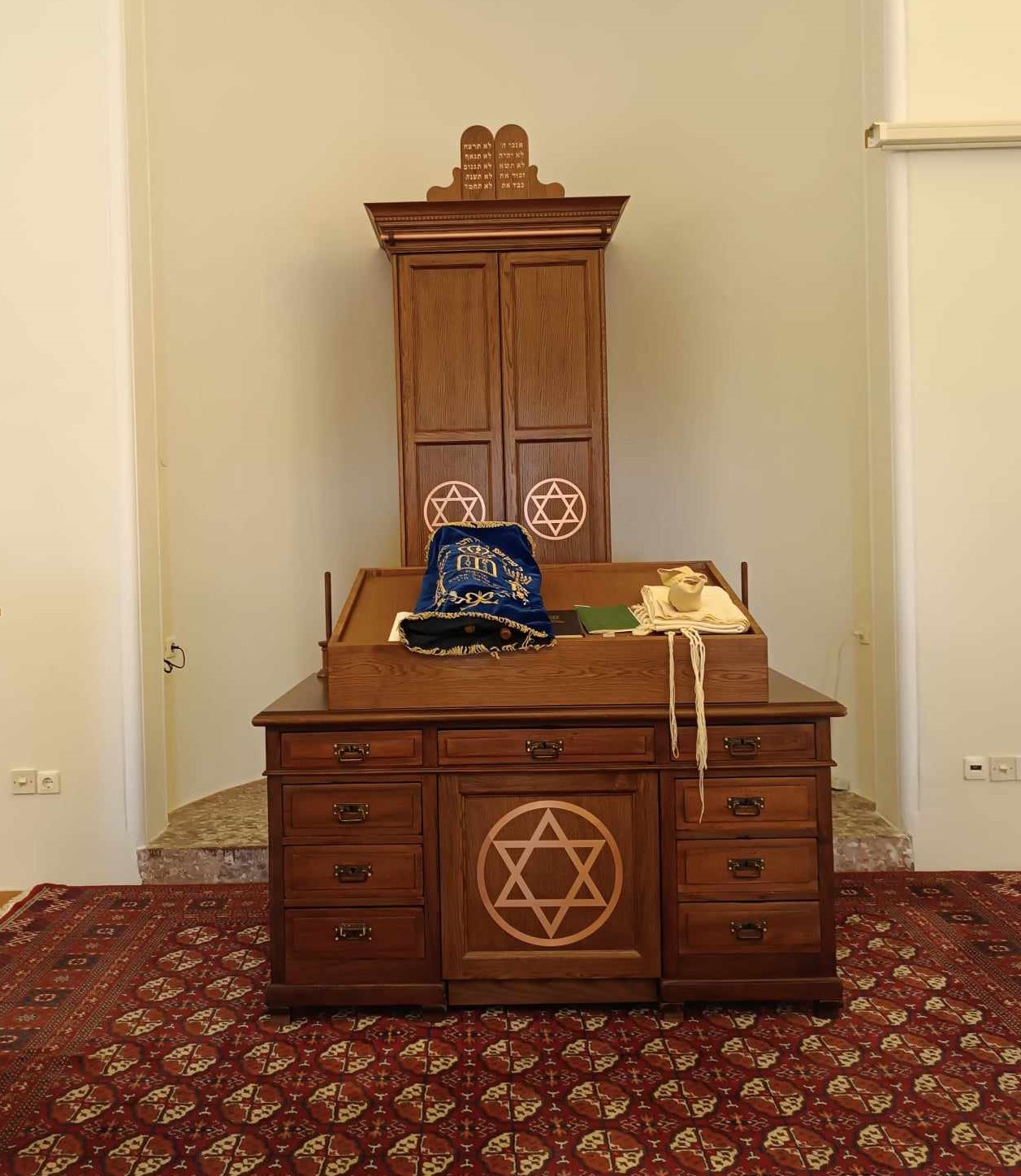
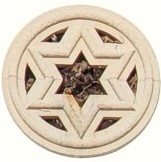 In 1747 Eliezer Tarsia built, at his own expense, a small but impressive Synagogue, which was maintained after his death by the income he bequeathed from a neighboring house and two shops.
In 1747 Eliezer Tarsia built, at his own expense, a small but impressive Synagogue, which was maintained after his death by the income he bequeathed from a neighboring house and two shops.
In 1850, 40 families lived in Kos, which decreased to 25 in 1872.
The Jews of Kos were engaged in the export of grapes and raisins and in the trade of metals and clothing. In 1901 there were only 10 families in Kos who were mainly engaged in trade. The members of the Jewish community lived in harmony with the inhabitants of the island and spoke Greek, Turkish and Spanish Hebrew.
The size of the Community increased significantly, during the Greek-Turkish War in 1918-22, with refugees from Asia Minor and specifically from Smyrna.
In 1933, Kos was hit by a very strong earthquake, as a result of which many human lives were lost and important monuments were destroyed, including the Synagogue. Immediately after the destruction of the old Synagogue, a new one, Kal Shalom, was built, very close to the port, which still exists today, at 4 Alexandrou Diakou Street. The Synagogue served the religious needs of the 140 members of the Israeli Community.
Holocaust
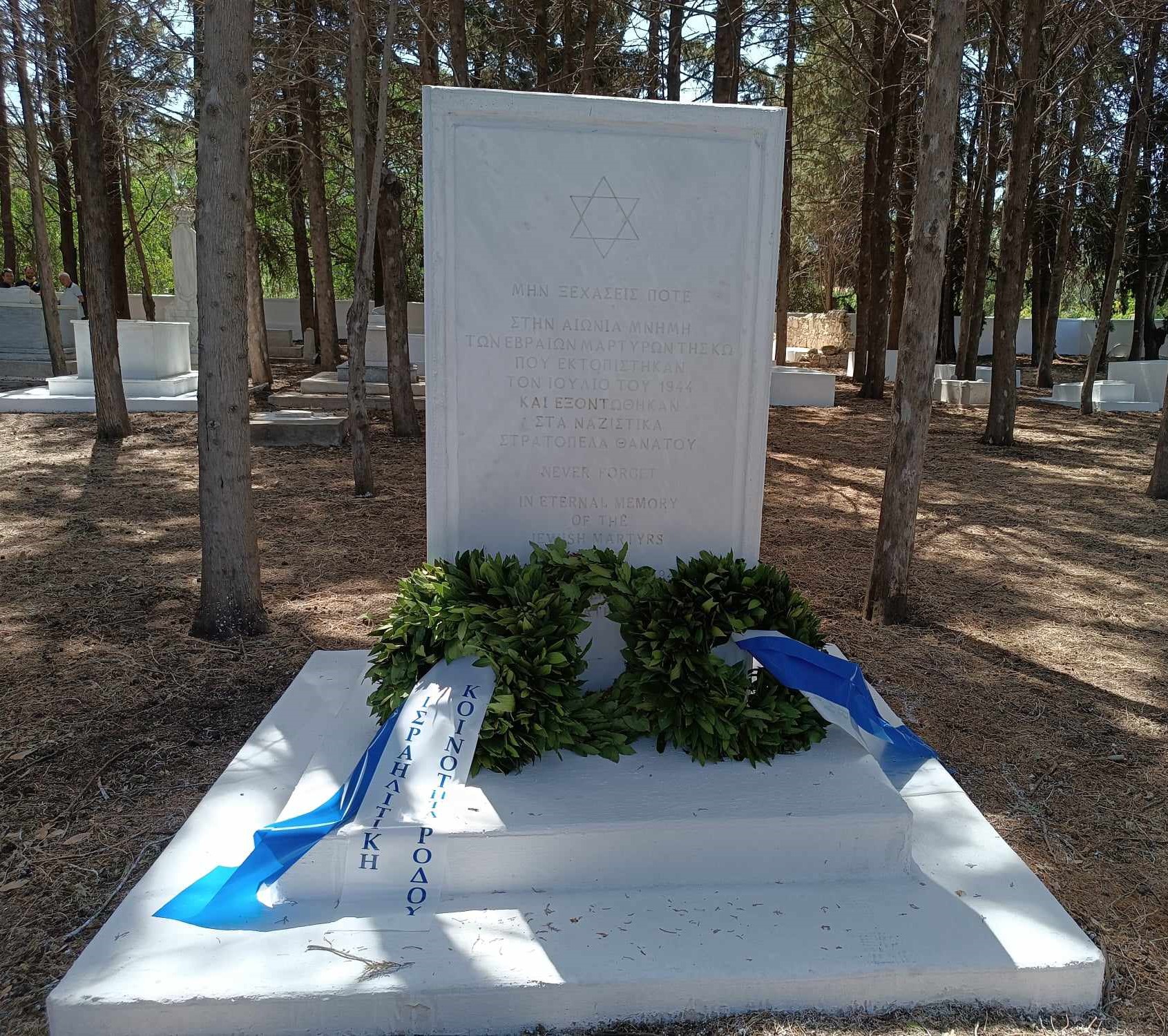
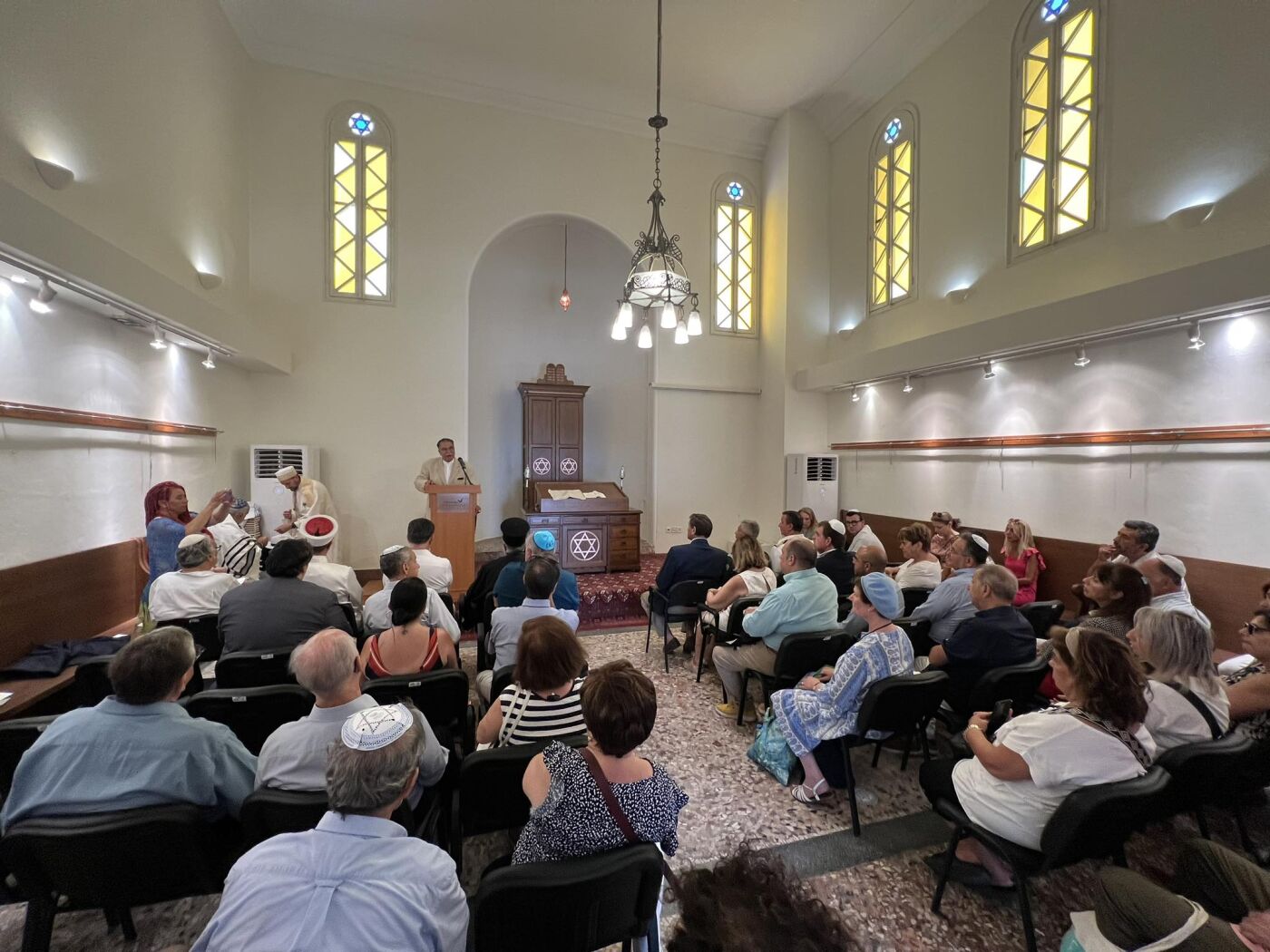 After the capitulation of the Italians, in 1943, and the occupation of the Dodecanese islands by the Germans, the members of the Community of Kos were arrested and their property confiscated. On July 22, 1944, the Jews from Kos and Rhodes were piled onto three cargo ships bound for the port of Piraeus. After their arrival in Piraeus they boarded trains bound for Auschwitz.
After the capitulation of the Italians, in 1943, and the occupation of the Dodecanese islands by the Germans, the members of the Community of Kos were arrested and their property confiscated. On July 22, 1944, the Jews from Kos and Rhodes were piled onto three cargo ships bound for the port of Piraeus. After their arrival in Piraeus they boarded trains bound for Auschwitz.
During the Holocaust, all members of the Jewish Community of Kos perished. Only one person survived the Holocaust and returned to the island.
Post-war
After the war, the Synagogue of Kos functioned as the Spiritual Center of the Municipality. In 2023, the Synagogue was renovated, with the cooperation of the Municipality of Kos, KISE and the Civic Society of Hippocrates, and was inaugurated its reopening as a Synagogue. The visitor can recognize the Synagogue by the Star of David located on the entrance railings and on the facade of the building.
In Kos there is also a small Jewish cemetery which has tombstones dating back to the 17th century.
